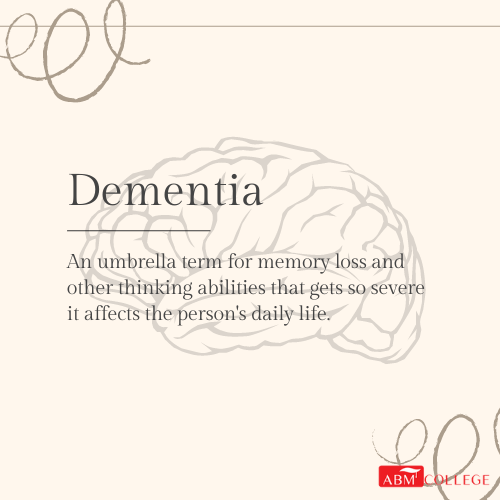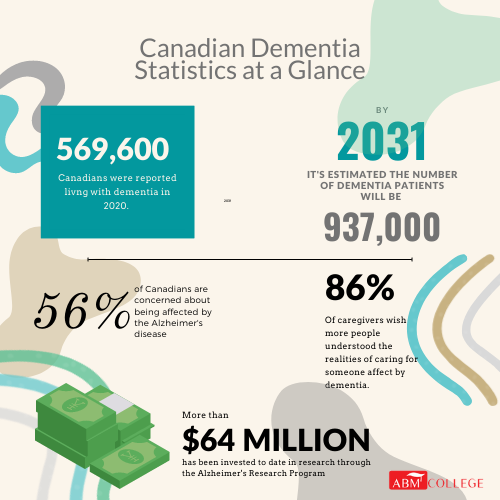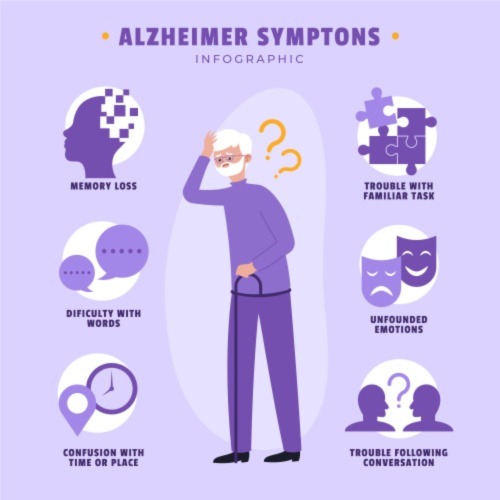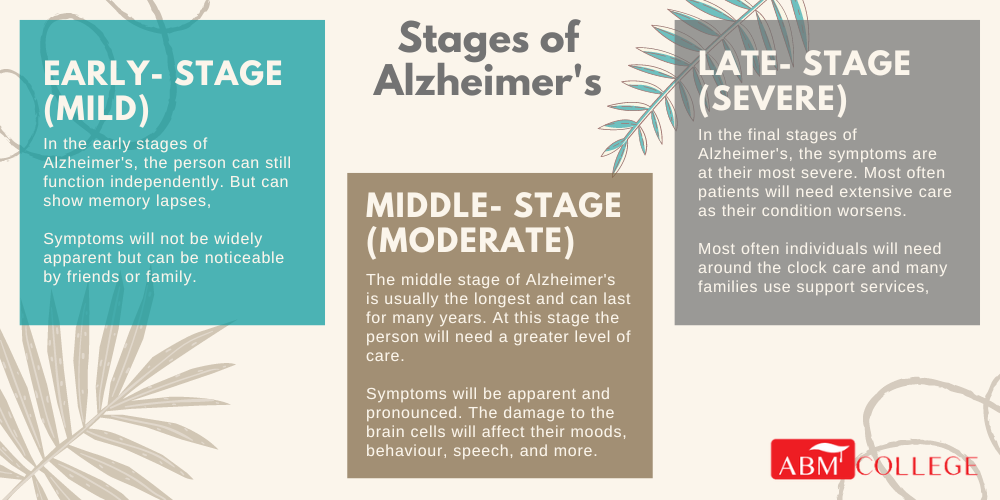According to statistics, every 3 seconds someone around the globe develops dementia.
November is National Alzheimer’s Awareness Month, which makes it a great time to spread awareness about this disorder. There are many misconceptions and stigmas connected to dementia. But there are also ways we can change this way of thinking together.
In this article, we’ll learn a little bit more about what dementia and Alzheimer’s are, what the signs of Alzheimer’s are, and how Alzheimer’s is treated.
National Alzheimer’s Awareness Month: What you should know about Dementia and Alzheimer’s
What is dementia?
To have an understanding of what Alzheimer’s is, the first point you need to understand is dementia. Dementia is not a singular disease. Instead, it’s an umbrella term — think like heart disease. Dementia covers a range of specific conditions, which includes Alzheimer’s disease.
Any disorder that falls under the “dementia” category happens because of abnormal brain changes. These changes can reduce thinking skills which can affect daily life and function. They can also affect the person’s behaviour, feelings, and relationships.
Some other types of dementia include:
- Alzheimer’s
- Vascular
- Lewy body
- Frontotemporal
- Other (which can include Huntington’s)
It is worth noting that Alzheimer’s accounts for the majority of dementia cases coming in at 60-80%. But there are different forms of dementia. Other conditions that can cause symptoms of dementia include infections, immune disorders, and more.
What causes dementia?
Dementia is caused by damage to the brain cells. This damage makes it more difficult for the brain cells to communicate with each other. When the brain cells can’t communicate, it affects how the person thinks, behaves, and feels.
Our brains have different areas that are in charge of different functions like memory, speech, or movement. If cells in certain areas have damage, that area will not carry out functions normally.

Common misconceptions about dementia
Myth: Dementia happens as you get older. So when I get old, I’ll get it too.
Reality: Dementia is not a natural part of aging.
Most people don’t develop dementia as they age. Right now, researchers aren’t exactly sure what causes dementia. But we do know that certain risk factors and medical conditions can increase a person’s risk.
Myth: I’m experiencing memory loss. That means I have dementia.
Reality: Memory loss can be a natural part of aging. It doesn’t guarantee you have dementia.
People will naturally forget things from time to time. This doesn’t immediately mean you have dementia. But if your memory loss is intense enough to affect day-to-day activities, it’s best to get in touch with a doctor as soon as you can.
Myth: Dementia only affects older people.
Reality: Dementia can affect people from their 30s onwards.
Dementia is a progressive, degenerative disease. Although people over 65 are at the highest risk, dementia can appear in people as young as 30. This is known as young-onset dementia. +

What you need to know about Alzheimer’s
What is Alzheimer’s?
Alzheimer’s is the most common form of dementia. It’s known for causing severe memory loss and other symptoms that interfere with daily life. This disease happens when there are complex brain changes that damage the brain cells. The symptoms of Alzheimer’s worsen as time goes by. One of the most common and early symptoms of Alzheimer’s is trouble remembering new information. This happens because Alzheimer’s affects the part of the brain responsible for learning.
As Alzheimer’s advances, symptoms get worse and more severe.
As time goes by, more symptoms can appear which can include:
- Disorientation
- Confusion
- Behavioural Changes
- Difficulty with problem-solving
- Problem with speech
- Difficulty completing tasks
Symptoms of Alzheimer’s
The most common early symptom of Alzheimer’s is difficulty remembering newly learned information.
When it comes to Alzheimer’s the most common early sign is difficulty remembering new information. Similar to the rest of our body, the brain changes as we age. Things like slowed thinking or occasional forgetfulness is normal. But serious memory loss, confusion, or other major changes with our mind’s functions can be signs of damage to our brain cells.

Alzheimer’s usually begins by affecting the area of the brain that handles learning. As the disease progresses, it will increase in severity.
More severe symptoms include:
- Disorientation
- Mood and behavioural changes
- Severe confusion about time, events, and places
- Unfounded suspicion about friends, family, or caregivers
- Intense memory loss
- Difficulty speaking, swallowing, and walking
What are the stages of Alzheimer’s?
The symptoms of Alzheimer’s worsen as time goes by, but the rate of progression depends on the person. There are three general stages of Alzheimer’s: early (mild), middle (moderate), and late (severe).
It’s important to keep in mind that it can be hard to place a person in a specific stage. Sometimes the stages of Alzheimer’s can overlap.

How is Alzheimer’s treated?
Currently, there is no cure for Alzheimer’s but there has been some progression in how we treat it. The first treatment option for those affected is called aducanumab (Aduhelm™). This medication can help reduce the cognitive and functional decline in people with early stages of Alzheimer’s.
Other treatments can help slow the progression of Alzheimer’s symptoms. These treatments can help improve the lives of those living with Alzheimer’s as well as their caretakers.
This brings up an important aspect of Alzheimer’s: their caretakers. As Alzheimer’s gets worse the need for health care aides and support workers increases. These professionals can help with daily activities, medication, and much more.
Conclusion
Well, this brings us to the end of our article. You now have a better understanding of what Alzheimer’s and dementia are, the causes, the stages and symptoms of Alzheimer’s, and finally how Alzheimer’s is treated. Although there may be no cure, there is still plenty each one of us can do to create a world with more awareness and understanding.
About The Author

Private Career College
ABM College is a leader in career-focused education, committed to empowering students with industry-relevant skills. With expert instructors and practical training, ABM College delivers high-quality programs in health, business, technology, and more, ensuring graduates are prepared to meet workforce demands. Known for its supportive learning environment and a focus on real-world application, ABM College is a trusted educational partner helping students achieve professional success across Canada.
